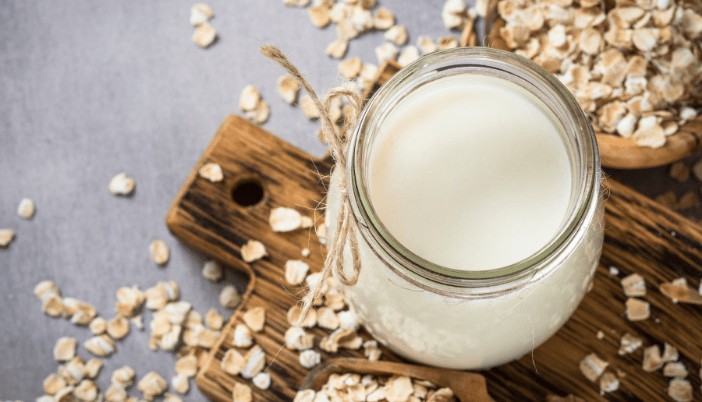Are Oreos Vegan: A Deep Dive into Whether the Iconic Cookie is Suitable for a Plant-Based Diet
Oreos, the beloved chocolate sandwich cookies synonymous with childhood dunks and late-night cravings, have long sparked curiosity about their suitability for dietary restrictions. For vegans, in particular, whether Oreos fall under the “plant-based” umbrella remains a subject of debate and nuanced investigation.
Oreos Ingredient Breakdown
At first glance, Oreo’s ingredient list seems relatively simple: flour, sugar, cocoa, vegetable oil, palm oil, leavening agents, salt, soy lecithin, vanillin, and milk (whey). However, this seemingly innocuous “milk” throws a wrench into the vegan equation.
The complete list of ingredients in Oreos are:
Base:
- Unbleached Enriched Flour (Wheat Flour, Niacin, Reduced Iron, Thiamine Mononitrate (Vitamin B1), Riboflavin (Vitamin B2), Folic Acid): This forms the cookie base, providing structure and texture.
Sweeteners:
- Sugar: Adds sweetness and helps create the crumbly texture.
- High Fructose Corn Syrup: An additional sweetener often criticized for its health implications.
Fats and Oils:
- Palm and Canola Oil: Provides fat and moisture, contributing to the overall flavor and mouthfeel.
Flavorings:
- Cocoa (Processed with Alkali): Responsible for the classic chocolate flavor and dark color.
- Vanillin: Artificial flavoring enhances sweetness and creates a vanilla aroma.
Leavening and Texture:
- Leavening (Baking Soda and Calcium Phosphate): Helps the cookies rise and become airy.
- Salt: Enhances the overall flavor and balances the sweetness.
- Soy Lecithin: An emulsifier that helps blend the fat and water-based ingredients.
Cream Filling:
- Chocolate: Used for the creamy filling, typically in cocoa butter and cocoa solids.
Allergens:
- Milk (Whey): This is the crucial ingredient that raises concerns for vegans, as it contains animal-derived whey protein.
- Soy: Soy lecithin may trigger allergies in some individuals.
- Wheat: Contains gluten, a potential allergen for those with celiac disease or gluten sensitivity.
Navigating the Dairy Dilemma
While the main ingredients – flour, sugar, cocoa, and oils – are plant-based, the presence of milk raises concerns. This milk typically comes in the form of whey, a milk protein byproduct primarily used for its textural and flavor-enhancing properties.
However, the story doesn’t end there. Here’s where things become complicated:
- Cross-Contamination Conundrum: While Oreos don’t directly contain ingredients like animal fat or eggs, they are produced in facilities that also handle dairy products. This raises the possibility of cross-contamination, where trace amounts of milk protein could transfer to the cookies during production.
- Vegan Certification Variations: Adding another layer of complexity, Oreo cookies have yet to receive official vegan certification from major organizations like The Vegan Society. This lack of certification further fuels the debate surrounding their suitability for strict vegan diets.
Navigating the Gray Area: Vegan or Not Vegan?
With these ambiguities in mind, where does that leave the vegan Oreo enthusiast?
Determining the “veganness” of Oreos ultimately boils down to personal interpretation and dietary priorities. Here are some things to consider:
- Strict Vegan Approach: Individuals adhering to a strictly plant-based diet, avoiding even trace amounts of animal products, might opt for alternative cookies devoid of dairy or cross-contamination risks.
- Personal Threshold: For some vegans, the potential for trace cross-contamination might not be a deal-breaker, especially if other aspects of their diet adhere strictly to vegan principles.
- Ethical Considerations: Beyond simply the ingredient list, some vegans avoid products like Oreos due to the ethical concerns surrounding their production, including dairy farming practices and the environmental impact of palm oil usage.
Beyond the Black and White: Exploring Vegan Oreo Alternatives
The good news for those craving that satisfying cookie crunch without compromising their dietary choices is that the plant-based food market is booming! Numerous delicious and ethical alternatives to Oreos are now readily available, offering comparable textures, flavors, and playful dunking potential. Some popular options include:
- Daiya Sandwich Cookies: These dairy-free delights boast a crumbly texture and rich chocolate filling, providing a satisfying Oreo-like experience.
- Barbara’s Double Chocolate Animal Cookies: Certified vegan and made with wholesome ingredients, these cookies offer a rich cocoa flavor and a satisfying crunch.
- Theo’s Cashew Butter Cups: While not technically cookies, these creamy and decadent vegan treats provide a similar satisfaction to Oreo’s classic chocolate and “cream” combination.
Personal Preference
Whether you deem Oreos vegan depends on your values and dietary priorities. The presence of milk and potential cross-contamination pose legitimate concerns for some vegans, while others might find these factors negligible in the grand scheme of their plant-based journey. Ultimately, the choice to indulge in an Oreo rests on personal convictions and considerations for your diet’s ethical and health-related aspects.
Remember, the beauty of a plant-based lifestyle lies in its diversity and flexibility. With many delicious and ethical alternatives readily available, there’s no shortage of ways to satisfy your sweet tooth while staying true to your values. So, whether you remain loyal to the iconic Oreo or embark on a vegan cookie adventure, remember that the key is to enjoy your cravings with awareness and an open mind!





